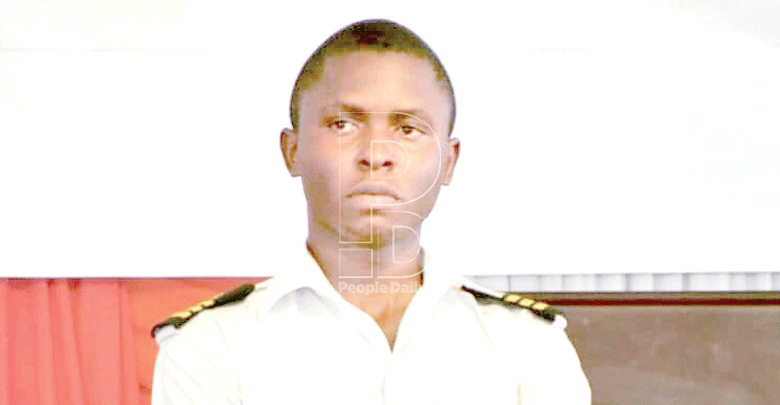Growing up: Serial innovator on mission to ease your life
By Alfayo Onyango, August 20, 2019Growing up, Simon Kupalia’s curiosity got him into trouble time and again. He would dismantle electric appliances and build new stuff with everyday objects.
And when he joined school, another passion grew— his love for books. He was more interested in the work of Elon Musk, Nikola Tesla, Peter Thiel and Mark Kelly. It was the South African tech guru Elon’s biography narrated in
The Engineer by Erik Nordeous about the dream of wanting to go to planet Mars, alongside another Zero to One by Peter Thiel that would curve up Simon’s ambitions to life goals. Aroused by these writers, he slowly realised his infatuation with technology and physics as his true purpose in life.
After his secondary education at Shimo La Tewa High School in 2011, he enrolled at Technical University of Mombasa to pursue a diploma in marine engineering. Then still a new course, there were only five students in his class and a degree programme was not up for registration either.
After his diploma, he advanced to competency-based studies in Bandari Maritime Academy in 2016 before heading to Dar es Salaam Maritime Institute (DMI) in 2017 to become a fully-fledged seafarer or a marine professional.
Creative mind
The investment in his education has bore many fruits, as he is a qualified sailor with dreams of chattering yachts and ships if not owning them.
But currently, the 25-year-old is on a break from marine life in respect of his other ambitions. He has four innovations: Smart Bin Electric Generator (technology that converts garbage to electricity), a proprietary briquetting machine, some special interlocking construction bricks made from glass waste, an oil detector for ships (for oil spillage in oceans), and a recruitment tool based on Artificial Intelligence.
“Smart Bin Electric Generator, my brainchild, which I shared with other five young people was intended to address the issue of pollution by solid waste.
The idea was to have portable units that could be availed to homesteads, small to medium institutions and even factories. By doing so, we would minimise the amount of waste collected in dump sites and landfills,” he explains.
So, what happens if litter/waste is thrown in this smart bin? “I called it ‘smart’ because I had it sort and separate waste using a part-system I designed. It sorts out organic and inorganic waste.
The organic waste goes to a reactor for conversion where fuel gas is extracted, which in turn goes to another system that converts the gas into electricity. This electricity can be used in the premises.
The other inorganic waste is further sorted into recyclable and non-recyclables then stored in different compartments within the unit,” he says.
The team raised money sufficient to build a primitive version of the prototype, but it has proved to be an expensive project that would require intense financing. “We pitched the idea to some people, it intrigued them, but they thought it was too far-fetched,” he says.
So, they had to go back to the drawing board. “We decided to get into the business of making and selling briquettes so as to make money and finance our initial project,” he adds.
Kupalia was tasked to model and build a briquetting machine, which he did. The project is now up and running.
Early this year, a construction company reached out to Kupalia requesting him to help them recycle waste glass. “I told them I had an idea — to use waste glass in brick construction. Crushed glass could be used as sand.
The idea was to infuse crushed glass into bricks by moulding them together with other materials to make stronger blocks.
The company asked me to prepare a prototype, which I did and presented. But they are yet to get back to me given the financial implication in terms of taking it to a commercial level,” he explains.
Changing culture
And as for the oil detector, Kupalia discovered it in his random experimentations. “I did this in response to marine pollution, which is a primary concern in the maritime industry even though I still have this tech in prototype stage,” says the firstborn of three who was raised in Coastal towns of Malindi, Kaloleni Kilifi.
His last innovation is a recruiting tool based on Artificial Intelligence. “I want to change the culture of recruiting where people get recruited based on their academic qualification, but are poor in delivery while we have top talent (without papers) who can deliver much better.
So, this tool is based on psychometrics—we train it to analyse potential employees. The thing is we gauge aptitude and adaptability to a particular job…if they make the cut based on how the system decides they get the job,” Kupalia says. He hasn’t commercialised this innovation yet.
